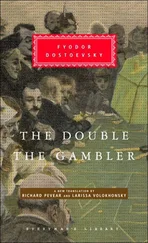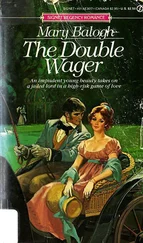“Jordie…”
“It’s short for Jordan. She’s another senior in the church, and she moved here from New York, too. She was also part of that Thursday morning seniors’ game day I told you about. When Bobbie was living here, he and Reese and Jordie were real staples,” Nancy said, and abruptly called over to a slightly stooped old woman in an elegant cardigan with pearl buttons and a short crop of platinum hair impeccably coiffed and slightly feathered. Her face was deeply furrowed, but Laurel couldn’t tell for a moment if the wrinkles were all due entirely to age or the way she was laughing in response to something a nearby parishioner had said. She looked more like a peer of Pamela Marshfield than a dowager in a small town in Vermont. Laurel could imagine the woman in a spa or a country club or jauntily waving to a doorman as she passed beneath an immaculate awning on Manhattan ’s Upper East Side. Nancy called again, this time starting down the aisle toward the woman and dragging Laurel with her. Jordie finally noticed them and smiled at Nancy as they arrived at her side.
“Jordie, I have someone here who wants to meet you,” the schoolteacher said. “This is Laurel. She’s interested in Reese and Bobbie, and I thought you might be able to help her. Do you have a moment?”
The woman eyed her, bobbing her head and scrutinizing the girl. Appraising her. The seemingly good-natured laugh Laurel had witnessed a moment ago had evaporated completely, and the social worker assumed it was because of the subject of her inquiry.
“I have a moment,” said Jordie carefully. “What do you do, young lady? Are you a writer ?” She said the last word almost scornfully. Are you a pornographer ? “I’ve had some bad experiences with reporters in my day, and I’d rather not have another.”
“I’m a social worker,” Laurel answered. “I work for BEDS. Up in Burlington?” She had surprised herself by turning a simple declarative into a question. Was she that intimidated? She reminded herself that in the last week she had confronted Pamela Buchanan Marshfield and T. J. Leckbruge, and hadn’t backed down from either.
“Yes, I’m familiar with BEDS.”
“Well, that’s how I got interested in them. Bobbie Crocker was one of our clients.”
At first she thought Jordie was nodding her head in recognition, but then she understood it was the bounce of a person with Parkinson’s. “One of your clients?” she asked, and that glacial veil, part suspicion and part condescension, thawed in an instant.
“Yes.”
“He was…homeless?”
“He was. He passed away two weeks ago.”
“Oh, I feel horrible,” she said, her voice growing soft. “Just horrible. I didn’t know he had wound up on the streets. I didn’t know he had died.”
“Jordie,” Nancy said, wrapping one arm around the old woman’s shoulder consolingly, “don’t feel bad. None of us knew.”
“He’d been living with Reese, you see,” Jordie said, so shaken by the news that she lowered herself carefully down onto the back wall of the pew.
“Yes, that’s what I thought.”
“It was Reese’s house. And when Reese died, his sister said he could stay there till she sold it.”
“When was this?” Laurel asked.
“At his funeral.”
“And his sister’s name is Mindy, right? And she lives in Florida?”
“Yes, I think so.”
“So Bobbie was at Reese’s funeral?”
“Oh, absolutely.”
“Did he say whether he was going to take Mindy up on her offer?”
“This was all such a long time ago. Two years ago, at least. Maybe three.”
Briefly, Laurel considered correcting Jordie, reminding her that it was only a little over fourteen months ago that Reese had passed away. But there was no reason. “What do you remember?” she asked, though her faith in the woman’s memory had been shaken a tiny bit by this lapse.
“Well, we discovered that Bobbie’s mother and my aunt were friends. Isn’t that a small world?”
“Jordie, you never told us!” Nancy said lightly, as her youngest daughter abruptly reappeared in the sanctuary. Apparently, the drawing the girl had made for her Sunday school teacher was still in their car and she needed her mother to help her retrieve it. Nancy shrugged apologetically and said she’d be right back.
“Bobbie didn’t like to talk about his family,” Jordie continued. “I guess they had some sort of falling out.”
“Did he tell you his mother’s name?” Laurel asked, waiting for the confirmation she could share with David and Katherine and Talia-with everyone who seemed to be doubting her.
“Crocker, I assume,” Jordie replied, and Laurel felt a sharp spike of disappointment. “Ladies of that generation-heavens, ladies of my generation!-always took their husbands’ last names. That’s just the way it was done.”
“What about a first name?”
“Oh, I can’t remember anymore. If only you’d asked me six or seven months ago. But I’m honestly not sure if I ever knew. I told him my aunt’s name, but I’m not positive he ever told me his mother’s. Lord, growing old really isn’t for the faint of heart, is it? You forget so much.”
“Well, then, tell me, please, anything you can remember,” said Laurel. “Anything at all.” Perhaps, she thought, there would still be a surprising, corroborative detail.
“Okay. He lived on Long Island. He grew up there, you know.”
“I did know that, yes.”
“And he had a sister.”
“Did he tell you her name?”
“No, I don’t think so. I’m sorry. But she was older, I am quite sure of that, and…”
“And?”
“And my aunt gave that girl a putter once, Bobbie’s sister, that is, when the girl was little more than a toddler. A tiny golf putter. It was a present. Bobbie said that his mother had always liked my aunt very much. Yes, very, very much. They didn’t always travel in the same social circles because his mother was married and my aunt wasn’t, but they went to an awful lot of parties together-including some at that famous bootlegger’s estate. You know the one.”
“Gatsby’s?”
“Well, that wasn’t his real name, of course. But, yes, that’s who I mean. When Bobbie found out who my aunt was, he said that his mother and my aunt spent a lot of time there together. Really, a very good amount, especially when they were in their early twenties. I don’t remember exactly what he said-I don’t remember anything exactly these days-but one time he implied that his mother had liked that awful man more than my aunt had. Gatsby. Gatz. Whatever. Can you imagine? I’m sure that wasn’t true. People just went to his parties because they were great big festivals. Circuses. No one actually went because they liked him. Good heavens, how could they?”
“What about your aunt? What was her name?”
“Oh, I’m sure you’ve heard of her, young lady. Her name was Jordan Baker, and I’m named after her. She was a famous golfer on the women’s pro tour. A real pioneer. But there are still some people out there who think she was some sort of cheat on the golf course. A sneak! Well, that wasn’t my aunt, I promise you. And that’s why I wanted to know if you were a reporter. I can’t tell you how many people I have had to talk to over the years about my aunt as a result of some malicious and completely untrue story about a tournament she was in as a very young woman.”
“Oh, no one thinks badly of your aunt,” Laurel reassured her, though she certainly had: She had indeed viewed the golfer as a cheat and a sneak. And, she realized, she was incapable of mustering much respect for anyone who had sided with Tom and Daisy Buchanan that summer of 1922.
Jordie looked up at her now, her venerable head still quivering slightly, and repeated, “Really, Bobbie could have stayed with me. You believe that, don’t you? I have so much empty, dusty space. He could have had his own little wing with a room and a bathroom! All he had to do was ask!”
Читать дальше












